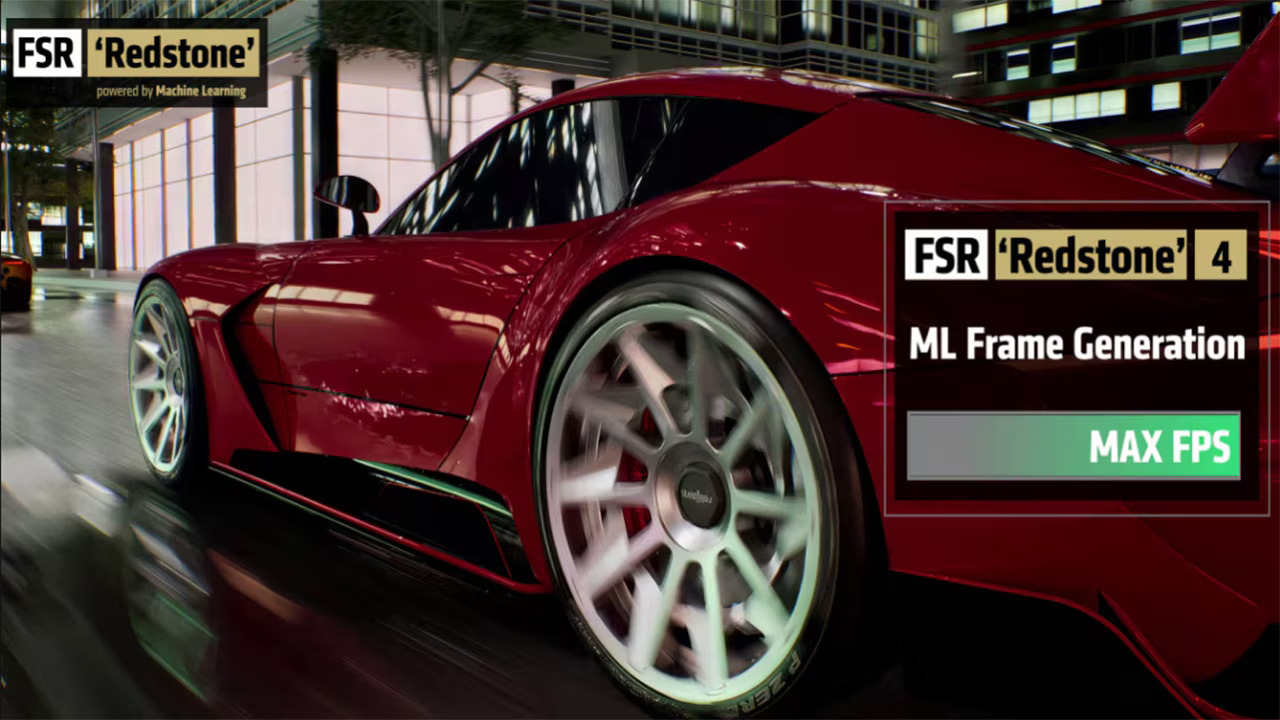
AMD’s ML-powered neural rendering technology might not be exclusive to Radeon GPUs, as the company’s translation of neural operations will be compatible with other GPU shaders.
AMD’s FSR Redstone Won’t Be Dependent On AI Acceleration Capabilities, Hence Will Supporter Older GPUs Too
For those unaware, AMD announced the FSR Redstone at Computex 2025, a Machine Learning suite that allows developers to integrate neural rendering technologies into their titles, enhancing visuals and performance. The suite will bring in several ML-focused features and in a report by 4gamer.net interviewing AMD’s Senior Director Software Development Chris Hall, it is claimed that FSR Redstone employs AMD’s ML2CODE (Machine Learning to Code), which is a part of the ROCm stack, and we’ll discuss its importance next.
AMD’s ML2CODE has a simple purpose: to take trained neural network models and translate them to GPU compute shader code. It produces optimized HLSL code that can be executed on any GPUs supporting modern shader pipelines, and since Redstone requires runtime ML inference, ML2CODE acts as an intermediary, by converting the neural rendering core into standard compute shaders. This means that FSR Redstone shader code can be executed on AMD, NVIDIA and Intel GPUs, allowing cross-platform support.
Interestingly, Hall has also disclosed that AMD’s FSR Redstone won’t specifically require AI acceleration capabilities at runtime. This means that all ML-focused features will be available to older GPUs since, instead of executing AI cores during runtime, Redstone optimizes the shader code and then executes it, allowing a speed-up without the need for AI compute. Of course, there will be a performance overhead while using Redstone on older hardware, but support is expected to be there.
This is a huge development in rendering technologies, especially for AMD’s RDNA tech stack. We have seen that FSR 4 was limited to RDNA 4, leaving behind the older generations. Since Redstone is a first-of-a-kind ML-based implementation by AMD, it could very well support RDNA 3 as well, bringing a performance boost to the platform.



